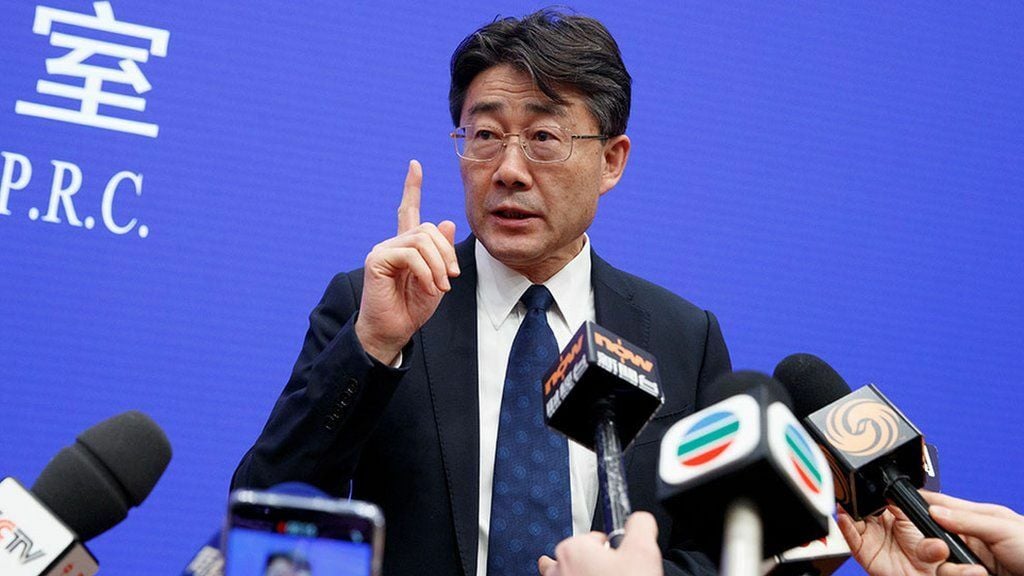Ex-Chinese CDC head: Don’t rule out Covid lab leak theory

The possibility of the Covid virus leaking from a laboratory should not be dismissed, according to a former leading Chinese government scientist. Prof George Gao, who was once the head of China’s Centre for Disease Control (CDC), played a crucial role in the pandemic response and efforts to trace its origins. While the Chinese government denies any suggestion that the disease may have originated in a Wuhan laboratory, Prof Gao is less certain.
In an interview for the BBC Radio 4 podcast Fever: The Hunt for Covid’s Origin, Prof Gao says, “You can always suspect anything. That’s science. Don’t rule out anything.” Now serving as vice-president of the National Natural Science Foundation of China after retiring from the CDC last year, Prof Gao is a world-leading virologist and immunologist.
He also reveals to the BBC that some kind of formal investigation into the Wuhan Institute of Virology (WIV) was conducted, indicating that the Chinese government may have taken the lab leak theory more seriously than its official statements suggest. “The government organised something,” he says, but adds that it did not involve his own department, the China CDC.
Prof Gao confirms that the WIV, one of China’s top national laboratories known for studying coronaviruses, was “double-checked by the experts in the field.” This is the first acknowledgement that some kind of official investigation took place. Although Prof Gao says he has not seen the result, he has “heard” that the lab was given a clean bill of health. “I think their conclusion is that they are following all the protocols. They haven’t found [any] wrongdoing.”
The debate over the origins of Covid remains highly politicised and controversial. Many scientists believe that the virus spread naturally from bats to humans, possibly through other animals. However, others argue that there is insufficient evidence to rule out the possibility that the virus infected someone involved in research designed to better understand the threat of viruses emerging from nature.
In the BBC podcast, Prof Wang Linfa, a Singapore-based scientist and honorary professor at the WIV, says a colleague at the institute had been concerned about the possibility of a lab leak but was able to dismiss it. Prof Wang, a professor of emerging infectious diseases at the Duke-NUS Medical School in Singapore, collaborates regularly with Prof Shi Zhengli, a professor with the same speciality at the WIV. Both are world-renowned experts on bat coronaviruses.
Prof Wang says Prof Shi told him she “lost sleep for a day or two” because she worried about the possibility that “there’s a sample in her lab that she did not know of, but has a virus, contaminated something, and got out.” However, she checked her samples and found no evidence of the virus that causes Covid or any other virus close enough to have caused the outbreak.
Prof Wang also dismisses the idea that Prof Shi or anyone in her team was hiding evidence of a lab leak, as they were behaving normally, including going out for dinner and planning a karaoke session. He is among a group of scientists who believe that the evidence strongly suggests the virus passed to humans in a Wuhan market.
However, Ian Lipkin, a professor of epidemiology at Columbia University in New York and one of the authors of a controversial March 2020 paper that ruled out any lab-based scenario, now says he has doubts about the strength of that earlier conclusion. He continues to believe that the market remains the most plausible explanation for where Covid came from, and does not believe the virus was deliberately engineered, but does not feel all laboratory or research scenarios can yet be excluded.
Prof Lipkin suggests that the virus could have “originated outside of the market and been amplified in the market.” While Prof Gao’s comments about not ruling out a lab leak may seem to be at odds with China’s public stance, there could be more common ground than it appears. The Chinese government has been promoting an unsubstantiated third theory that the virus may have been brought into the country on frozen food packaging.
Prof Gao’s comments could be seen as a more scientific version of the Chinese government’s position, as he rules out neither the lab nor the market. Both are based on the idea of a lack of evidence. “We really don’t know where the virus came from… the question is still open,” Prof Gao tells the BBC.
Scientists continue to dispute whether the question is still open, but there is broad agreement outside China that the country has not done enough to look for evidence or share it. The answer to the question of where Covid came from is crucial for those who have lost loved ones, those who have suffered, and those who continue to suffer.
Latest Thailand News
Follow The Thaiger on Google News:


























